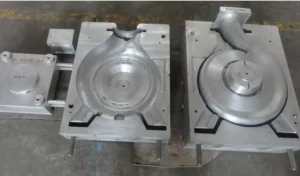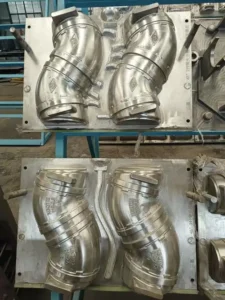forging die material
Forging Die Material: A Comprehensive Guide
n the industrial world of metal forming, the die is the heart of the forging process. The choice of forging die material is critical, directly impacting production efficiency, product quality, and tooling life. Understanding the different materials available, their characteristics, and their ideal applications is essential for any manufacturer looking to optimize their operations.

Common Types of Forging Die Materials and Their Characteristics
Forging die materials are typically high-strength, heat-resistant tool steels. The most common types include:
H13 Hot Work Tool Steel: This is the most widely used forging die material.
Characteristics: Excellent combination of high hot hardness, strong wear resistance, good thermal fatigue resistance (resists heat checking), and moderate toughness. It performs reliably under cyclic heating and cooling.
Applications: Ideal for hammer forgings, press forgings, and die-casting dies for aluminum and magnesium.
H11 Tool Steel:
Characteristics: Similar to H13 but with slightly lower alloy content. It offers high toughness and good resistance to thermal shock.
Applications: Often used for larger dies or applications where impact resistance is a higher priority than extreme wear resistance.
H12 Tool Steel:
Characteristics: Possesses good stability at high temperatures and fair toughness. Its performance is a balance between H11 and H13.
Applications: Commonly used for forging brass, copper, and steel parts.
H10 Tool Steel:
Characteristics: Known for its superior hot hardness and excellent resistance to heat softening at very high temperatures.
Applications: Suitable for forging highly abrasive materials or in processes involving very high operating temperatures.
H21 Tool Steel (Tungsten Hot Work Steel):
Characteristics: Offers exceptional red-hardness (ability to retain hardness at high temperatures) and wear resistance. However, it can be more brittle and susceptible to thermal shock.
Applications: Used for extrusion dies for brass, nickel alloys, and steel.
Premium/Modified H13 Steels:
Characteristics: These are enhanced versions of H13 produced through advanced melting processes like ElectroSlag Remelting (ESR) or Vacuum Arc Remelting (VAR). They offer superior cleanliness, more isotropic properties, and improved fatigue life.
Applications: Critical for high-volume production, precision forgings, and applications demanding maximum die life and reliability.
Key Industries That Rely on Forging Die Materials
Forging dies are indispensable across a wide range of heavy-industry sectors:
Automotive: Connecting rods, crankshafts, transmission gears, and axle beams.
Aerospace: Critical structural components, turbine disks, and landing gear parts.
Oil & Gas: High-strength valves, fittings, drill bits, and wellhead components.
Agricultural Machinery: Gears, sprockets, and high-strength structural parts.
Hardware and Tools: Wrenches, hammers, and other durable tools.

Forging Die Material vs. Cast Die: Key Advantages
While both are used to shape metal, forging die material offers significant advantages over cast dies:
Superior Strength and Toughness: The forging process itself aligns the metal’s grain flow, resulting in a continuous, unbroken grain structure. This creates a die with higher impact strength and fatigue resistance, meaning it can withstand the tremendous repetitive loads of the forging process without cracking.
Enhanced Density and Integrity: Forged dies have fewer internal voids, porosity, and inclusions compared to cast dies. This leads to more consistent performance, better heat treatment response, and a lower risk of catastrophic failure.
Better Wear Resistance and Longer Life: The denser, more uniform microstructure of a forged die provides superior resistance to abrasive wear from hot metal, resulting in a longer service life and reduced downtime for die changes.
Greater Reliability: The absence of hidden internal defects makes forged dies far more predictable and reliable, which is crucial for high-volume manufacturing and safety-critical applications.
Custom Forging Die Material Solutions
we understand that every forging operation is unique. There is no universal “best” die material—the optimal choice depends on your specific application, the material being forged, production volume, and equipment type.
We specialize in providing custom forging die material solutions tailored to your exact requirements. Our engineering team will work with you to:
Analyze your specific forging process and challenges.
Recommend the most cost-effective and performance-oriented die material (H13, premium H13, etc.).
Customize the die design and heat treatment process to maximize hardness, toughness, and thermal fatigue resistance.
Deliver precision-machined dies ready for production.
Optimize your forging process with durable, high-performance custom dies. Contact us today for a consultation and quote on your next forging die material project.
